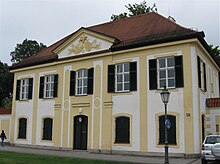
Ernst Werner Siemens was a German electrical engineer, inventor and industrialist. Siemens's name has been adopted as the SI unit of electrical conductance, the siemens. He founded the electrical and telecommunications conglomerate Siemens and invented the electric tram, trolley bus, electric locomotive and electric elevator.

Hermann von Siemens was a German industrialist of the Siemens family.
The Conservative Revolution, also known as the German neoconservative movement, or new nationalism, was a German national conservative movement prominent during the Weimar Republic and Austria, in the years 1918–1933.

Joachim-Friedrich Martin Josef Merz is a German politician serving as Leader of the Christian Democratic Union (CDU) since 31 January 2022 and as leader of the Union parliamentary group as well as the Leader of the Opposition in the Bundestag since 15 February 2022. In September 2024 Merz became Union's designated candidate for Chancellor of Germany for the 2025 federal election.

Carl Friedrich von Siemens was a German Entrepreneur and politician. A member of the Siemens family, he became associated with Siemens & Halske AG in 1899, his family company. He was responsible for the resurrection of the Siemens Group after the First World War. Before his death in 1941, he oversaw state railways for the Reichstag.
Neue Rechte is the designation for a right-wing political movement in Germany. It was founded as an opposition to the New Left generation of the 1960s. Its intellectually oriented proponents distance themselves from Old Right Nazi traditions and emphasize similarities between the far-right and the conservative spectrum.
Ernst Albrecht von Siemens was a German industrialist.

Armin Mohler was a Swiss far-right political philosopher and journalist, known for his works on the Conservative Revolution. He is widely seen as the father of the Neue Rechte, the German branch of the European New Right.
The Rudolf-Diesel-Medaille is an award by the German Institute for Inventions in memory of Rudolf Diesel for inventions and the entrepreneurial and economical implications accounting to the laureate. Since 1953 the award has been presented yearly until 1969 and then irregularly every two or three years.

DSW is an international private non-profit foundation addressing Sexual & Reproductive Health (SRH) and population dynamics. DSW funds its project and advocacy work from private donations and the financial support of governments, foundations and other organisations. It has its headquarters in Hanover, Germany.
The following is an index of sociopolitical thinkers listed by the first name.

Bayerische Akademie der Schönen Künste in München is an association of renowned personalities in Munich, Bavaria. It was founded by the Free State of Bavaria in 1948, continuing a tradition established in 1808 by the Royal Academy of Arts in Munich.

Nicola Leibinger-Kammüller born Leibinger is an American-born German businesswoman. She is the president and chairwoman of the Managing Board of the Trumpf GmbH + Co. KG, of which she has been a member since 2003, after having joined the company in 1985 as a public relations and branding specialist.

The Siemens family is the name of a German noble family, family of technology and telecommunications industrialists, whose members were founders and to the present day the largest shareholders of Siemens AG. The family have a wealth of over €8 billion, making them the 5th richest family in Germany, according to Handelsblatt.

Götz Kubitschek is a German publisher, journalist and far-right political activist. He espouses ethnocentric positions and is one of the most important protagonists of the Neue Rechte in Germany. Hailing from the staff of right-wing newspaper Junge Freiheit, Kubitschek is one of the founders of the Neue Rechte think tank Institut für Staatspolitik. Since 2002, he is the manager of his self-founded publishing house Antaios, since 2003 chief editor of the journal Sezession, as well as editor of the corresponding blog Sezession im Netz.
Wilhelm Schacht was a German botanist, gardener, photographer and author. He became known for being senior staff member of Botanischer Garten München-Nymphenburg, whose open air department he took care of for 21 years.

Isabel Pfeiffer-Poensgen is a German politician, lawyer and administrative officer. who served as State Minister of Culture and Science in the governments of Minister-Presidents Armin Laschet and Hendrik Wüst of North Rhine-Westphalia from 2017 to 2022. Since 2023 she is managing director of the Carl Friedrich von Siemens Foundation in Munich.

August Winnig was a German politician, essayist and trade unionist.

The Library of Conservatism is a specialized scientific library and think tank in Berlin. Its focus is non-fiction literature by conservative, right-wing and libertarian authors from the 18th to the early 21st century. The principal foundation for the library was laid by the writer and publicist Caspar von Schrenck-Notzing who gave his extensive private collection of books. The BdK opened in 2012 in Berlin. By 2019 its catalogued stock comprised more than 30,000 items. The library is financed and supported by the Foundation for Conservative Education and Research.
Heinrich Meier is a German philosopher. He has published on subjects including political theology, Leo Strauss and Carl Schmitt. He led the Carl Friedrich von Siemens Foundation from 1985 to 2022.















